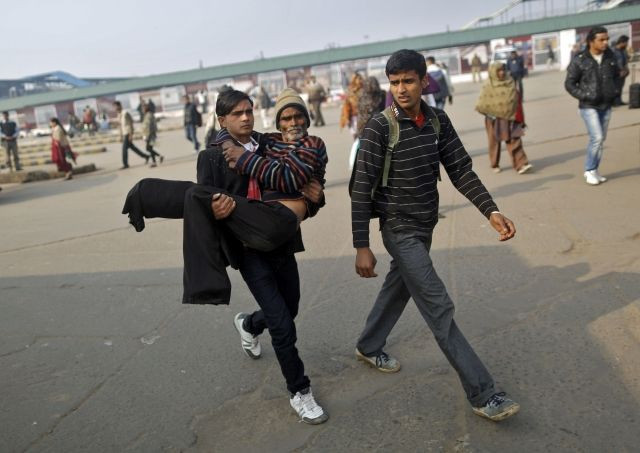Nationwide Trade Union Strike In India Affects Normal Life

Trade Unions in India began a two-day nationwide strike Wednesday in protest against government’s economic reforms, which they say will lead to price rise, privatization and loss of labor.
The unions have put forward multiple demands, which include containing the price rise, generating employment, halting disinvestment in public sector enterprises and implementing labor laws, the NDTV reported. Trade unionists said 100 million workers will be taking part in the strike.
The strike that has the participation of 11 trade unions has severely impacted banking and services sectors and public transport across the nation. Industry body, the Associated Chambers of Commerce and Industry of India (Assocham) estimated a loss of between 15-20 thousand crore rupees (about $3 billion) to the economy.
In Haryana, bus driver Narender Singh was killed when he tried to stop a bus from plying. Singh was the treasurer of All India Trade Unions Congress (AITUC), the labor arm of the Communist Party of India (CPI). The AITUC is one of the 11 central trade unions that have called for a two-day strike.
Commuters in the national capital faced hardships due to the reduced number of auto-rickshaws and taxis. Although Metro train services were not affected by the strike, bus services were partially impacted, as a number of bus unions have extended support to the strike.
Normal life was hit in states of West Bengal, Kerala and Tripura, where the unions enjoy the most clout.
Shops, markets and business establishments were closed in many parts of West Bengal’s capital Kolkata, while government-run buses and trams plied in large numbers in comparison to private buses and taxis, the Times of India reported. Banking operations remained paralyzed in the state.
The Trinamool Congress-led West Bengal government had warned employees against being absent during the strike. The state government had also asked shops and markets to remain open or face administrative action, including cancellation of trade license, Telegraph India reported.
Normal life was hit in Left Front-ruled Tripura due to the strike. Shops and markets were closed, as were schools, colleges, banks and financial institutions, the Indian Express reported.
In Kerala, the Congress-led government has declared “dies non” (no work, no pay) to discourage government employees’ participation in the strike. Buses and taxis were off the roads and shops and restaurants remained closed. Train services were not affected, DNA India reported.
In Andhra Pradesh, several public sector employees were absent from work. The Andhra Pradesh State Road Transport Corporation (APSRTC) staff has joined the strike in different parts of the state, reports said.
© Copyright IBTimes 2025. All rights reserved.






















